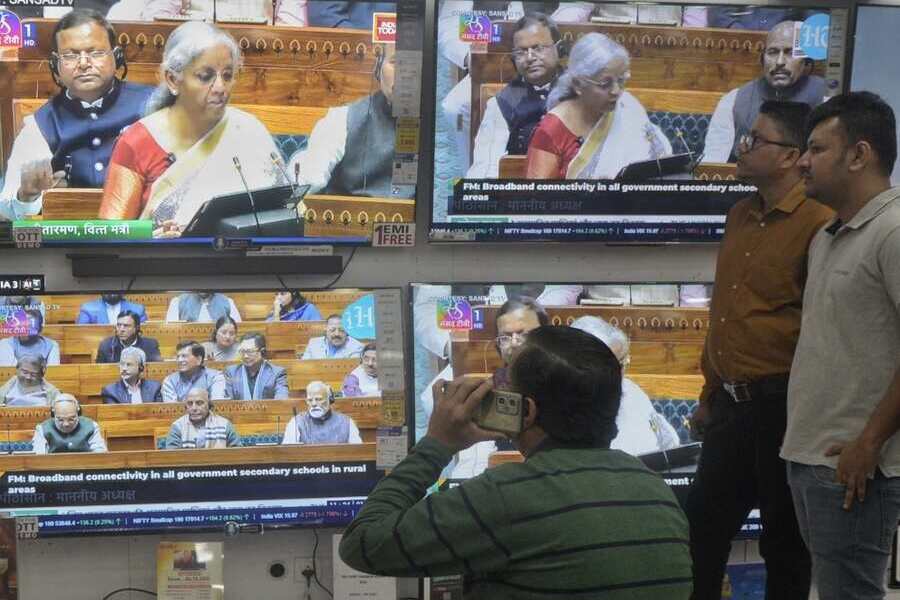 Sunday, 02 February 2025
Sunday, 02 February 2025
 Sunday, 02 February 2025
Sunday, 02 February 2025
In the early hours of 26th October 2024, Israel launched a series of airstrikes targeting military sites in Iran. The attacks were framed as a response to Iran’s earlier missile offensive, which followed the killing of Hamas chief Nasrallah by Israel.
The escalation has raised fears of a broader conflict in the Middle East, with multiple countries urging restraint and dialogue.
Here’s a look at the key statements from global leaders and institutions reacting to the airstrikes:
Israeli PM Benjamin Netanyahu: ‘Israel chose its targets based on national interests, not according to US instructions’
Israeli Prime Minister Benjamin Netanyahu defended the airstrikes, stating they were carried out in line with Israel’s national interests, not dictated by the U.S. "We chose our targets based on our national priorities, not according to what others suggested," Netanyahu said. He added that the strikes "severely harmed" Iran and "achieved all their goals." Netanyahu’s remarks come amid growing international pressure for restraint, but Israel maintains that the military action was necessary to safeguard its security against escalating threats from Tehran.
Iranian Foreign Minister Abbas Araqchi: ‘Iran has no limits in defending its interests, its territorial integrity, and its people’
Following the airstrikes, Iran’s foreign minister Abbas Araqchi reaffirmed the country’s commitment to defend itself, warning that Iran’s military capabilities would not be constrained by external pressure. While Araqchi refrained from confirming any immediate retaliatory action, he stressed that Iran would take whatever measures were necessary to protect its sovereignty. The statement reflects Tehran’s determination to maintain a strong stance amid growing tensions.
Iran’s supreme leader Ayatollah Ali Khamenei: ‘The evil actions of the Israeli regime should neither be exaggerated nor downplayed’
In his first public remarks following the attack, Iran’s supreme leader Ayatollah Ali Khamenei emphasised that Iran’s response must reflect the nation's resilience and strategic wisdom. Khamenei spoke of the importance of disrupting Israel's miscalculations but suggested that Iran’s military efforts in Gaza and Lebanon could take precedence over direct revenge.
Iran’s Mission to the UN: ‘Israeli warplanes attacked Iran from Iraqi airspace... The US complicity in this crime is certain’
Iran’s mission to the United Nations accused the US of complicity by allowing Israeli fighter jets to use Iraqi airspace for the operation. The statement implied that the control of the US military over Iraq’s airspace enabled Israel to carry out the airstrikes undetected. Iran framed the attack as part of a broader geopolitical conspiracy.
US President Joe Biden: ‘I hope this is the end’
President Joe Biden expressed hope that Israel’s airstrikes on Iran would mark the conclusion of the recent exchange of hostilities. Speaking at an event in Philadelphia, Biden indicated that Israel's targets were limited to military facilities, minimising civilian casualties. While supporting Israel’s right to self-defence, Biden also hinted at his administration’s preference for avoiding a broader conflict in the region.
Pentagon chief Lloyd Austin: ‘Iran should not respond to Israel's strikes, which should mark the end of this exchange’
U.S. Defense Secretary Lloyd Austin warned Iran against retaliating, stressing the need for restraint to avoid further escalation. In a statement following the airstrikes, Austin conveyed that continued hostilities could destabilise the region further. During a conversation with his Israeli counterpart, Austin highlighted potential opportunities to de-escalate tensions and encouraged all parties to tread cautiously to prevent full-scale war.
India’s Ministry of External Affairs (MEA): ‘We are deeply concerned by the evolving escalation in West Asia’
India expressed deep concern over the escalating violence in West Asia, calling on all parties to return to dialogue and diplomacy. In its statement, the MEA highlighted that Indian missions in the region were actively monitoring the situation and engaging with the Indian diaspora. India reiterated its stance that hostilities would benefit no one, especially as civilians and hostages continue to suffer amid ongoing violence.
German Chancellor Olaf Scholz: ‘We cannot continue with massive reactions of escalation. This must end now’
German Chancellor Olaf Scholz called on Iran to exercise restraint following the Israeli airstrikes. Scholz stressed that continuing the cycle of retaliation would only worsen the situation and complicate efforts to restore peace in the region.
Qatar’s Prime Minister Sheikh Mohammed bin Abdulrahman Al Thani: ‘We express grave concern over the possible consequences of Israeli strikes on Iran’
Qatar's Prime Minister Sheikh Mohammed bin Abdulrahman Al Thani expressed alarm over the potential fallout from Israel’s actions. During a phone call with Iranian Foreign Minister Abbas Araqchi, he highlighted the risks that further military engagements could pose to the already volatile region. Qatar, which has often played a mediating role in Middle Eastern conflicts, urged all parties to exercise caution to prevent a dangerous escalation.
Bahrain’s Foreign Ministry: ‘We condemn military action and call for an immediate ceasefire’
Bahrain’s foreign ministry condemned the Israeli airstrikes, urging an immediate ceasefire to prevent further civilian casualties. Bahrain, which has normalised ties with Israel in recent years, stressed the need to contain tensions and avoid an all-out conflict.







